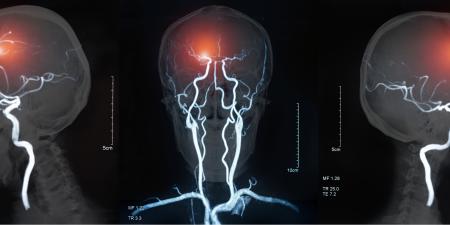The possibility that religious devotion is associated with better health—a belief held widely by the general public and increasingly within medicine—brings with it a growing demand that physicians address the religious and spiritual concerns of their patients in clinical settings. While no one disputes that religion provides comfort to a great many in times of distress, the question is whether physicians can make any additional contribution to this and if so, how? This brief essay summarizes the evolution of the recent move to reconnect spirituality and medicine and examines the empirical, practical, and ethical implications of physician involvement in the religious lives of patients. I conclude that (1) the evidence supporting a connection between religious devotion and better health is at best weak, (2) physicians lack the time and training to engage in anything more than the most superficial inquiry into their patients’ religious and spiritual concerns, and (3) there are significant and unresolved ethical impediments that make physician involvement in the religious and spiritual lives of their patients unjustified, impractical, and misguided.
Many factors have contributed to the growing interest in connecting religion and medicine. They include cyclical waxing and waning of religious sentiment throughout U.S. history, a rise in irrationality over the past 40 years, the influence of advocacy foundations, and patient dissatisfaction with technology in contemporary medicine. Regarding the latter, many see physician attention to the religious and spiritual lives of their patients as a solution to this problem, a way of “humanizing” the medical encounter. But as H.L. Mencken put it, for every complex problem there is a solution that is simple, neat, and wrong.
It is wrong for any number of reasons. First, despite the claims of proponents, the evidence linking religious devotion to better health is weak and inconclusive [1, 2]. The strongest evidence shows associations between increased attendance at religious services and reduced mortality [3]. But even this evidence is mixed and difficult to interpret.
People attend services for a great many reasons—out of religious devotion, certainly. But also out of loneliness or habit, to make business contacts, or to find friends. It is impossible to determine which of these religious or social benefits of church-going is responsible for the association with reduced mortality, assuming the association is solid. As Garrison Keillor remarked, “Anyone who thinks that sitting in church makes you a Christian must also think that sitting in a garage makes you a car.”
Second, practical constraints make it extremely difficult for physicians to do anything more than determine whether patients’ religious beliefs will influence their care. Advocates recommend conducting a “spiritual history,” a series of questions designed to inform the physician about patients’ religious and spiritual concerns [3, 4]. Different versions of these histories exist, but even the briefest reduces the limited time physicians have with patients. This is a significant problem, since many recent investigations have determined what practicing physicians know too well already: there is far too little time in the day to address all the medical matters that, on the basis of solid empirical support, are considered standard patient care. To take only one example, an American Journal of Public Health paper reported that for physicians to provide all services recommended by the U.S. Preventive Services Task Force at the recommended frequency would alone take 7.4 hours per day [5]. Physicians’ valuable time should be devoted to matters they are trained to manage and that make a difference to their patients’ health outcomes.
This leads me to the related point that physicians are untrained in religious and spiritual matters. Largely in response to funding from the John Templeton Foundation, medical schools have added training in these matters. In 1993, fewer than five schools offered some training in religion and spirituality; now 70 percent do [6, 7]. No one has tracked precisely what this training consists of, and there must certainly be considerable variation. Given medical school curriculum requirements, it is unlikely to consist of more than a few hours during the first 2 years. Exposure to such training does not qualify physicians to respond to the often complex religious and spiritual matters that arise for patients when they are ill. Health care chaplains study for years to be qualified to discuss such matters with patients. Indeed, in matters of religion and spirituality, the physician has no more expertise than the patient.
Third, attempts to bring religious matters into clinical medicine raise significant ethical concerns, including manipulation and outright coercion, invasion of privacy, and causing harm. Regarding the first, religious intrusion into medical practice threatens to violate the norm of patient autonomy. For example, the Christian Medical and Dental Association, a professional society with more than 17,000 members, publishes a handbook that instructs physicians on how to use their practices to evangelize. Because medical patients are very often in pain and fearful, they are especially vulnerable to manipulation by physicians who, even in these days of patient consumerism, retain positions of authority in the patient-physician relationship. When doctors capitalize on this authority to pursue a religious rather than medical agenda, they violate ethical standards of patient care.
Religious influence on medicine is pernicious in another way. Recently, the New England Journal of Medicine reported that 14 percent of U.S. physicians, representing different regions of the country and different medical specialties, believe that their personal religious views rather than the needs of their patients should determine which legal medical treatments they offer and, more distressingly, that they are under no particular obligation to disclose this bias to their patients or to refer them to other physicians who will offer the treatment. Ethicists have noted that, because doctors have state licenses that grant them exclusive rights to practice medicine, they have an obligation to deliver medical care to all those who seek it, not just to those who share their religious convictions. That means understanding the best scientific evidence about which factors contribute to health and which don’t and practicing medicine accordingly. It means not permitting personal values, religious or otherwise, to supersede the best interests of patients. As epidemiologist Petr Skrabanek noted, allowing doctors’ religious values to interfere with the care patients receive is “a social movement dressed up in scientific language” [8].
Proponents of bringing religious practices into medicine frequently claim that patients want their physicians to inquire about their religious and spiritual concerns under the guise of more patient-centered care. Some have remarked that, regardless of the evidence about relationships between religion and health, “we should address [religion in medical practice] because the patient surveys are saying that we should be addressing it” [9]. “Most patients desire to be offered basic spiritual care by their clinicians and censure our professions for ignoring their spiritual needs” [10].
Close inspection indicates that these claims are substantially exaggerated. With a single exception, the studies on which these claims are based ask general questions about patients’ interest in having physicians raise religious and spiritual matters in clinical medicine. In one study, for example, 456 patients from primary care clinics in six academic medical centers from North Carolina, Florida, and Vermont were surveyed about a variety of topics including their preferences for religious or spiritual involvement in their own medical encounters [11]. While two-thirds thought that their physician should be aware of their religious or spiritual orientation, only one-third wanted to be asked about it during a routine office visit. Not surprisingly, the more severe the medical condition, the more willing patients were to consider a spiritual or religious interaction. But when asked whether they would want their doctor to discuss spiritual issues even if it meant spending less time on their medical problems, the numbers of patients who wanted these discussions plummeted: only 10 percent were willing to make this trade-off while 78 percent were not.
Finally, bringing religious and spiritual matters into medicine raises a more basic question that derives from broader American societal trends: the apparent willingness to subordinate other interests and virtues to religious values. Advocates contend that religion and spirituality are important aspects in the lives of many of their patients and therefore, physicians should engage in discussing them. While it is certainly true that religion and spirituality are important to many patients, they are no more so than many other aspects of our lives: family, friends, work, hobbies, and so on. Religion or spirituality, like sports, or finances, or music, make up one of many essential concerns in the lives of patients [12].
To conclude, no one disputes that for a great many people, religion provides comfort in times of difficulty, illness-related or otherwise. However, because (1) the evidence of a connection between religious devotion and better health is weak and difficult to interpret; (2) there is far too little time in clinical practice to take on religious matters; (3) physicians are not trained to do so; and (4) doing so raises significant, unresolved ethical issues, the best approach for physicians is to respectfully note patients’ interests, religious or otherwise, and move on.
References
- Sloan RP, Bagiella E, Powell T. Religion, spirituality, and medicine. Lancet. 1999;353(9153):664-667.
-
Sloan RP, Bagiella E, VandeCreek L, et al. Should physicians prescribe religious activities? N Engl J Med. 2000;342(25):1913-1916.
- Koenig HG. An 83-year-old woman with chronic illness and strong religious beliefs. JAMA. 2002;288(4):487-493.
-
Puchalski CM. Spirituality and health: the art of compassionate medicine. Hosp Physician. March 2001;30-36. http://turner-white.com/pdf/hp_mar01_spirit.pdf. Accessed September 4, 2009.
-
Yarnall KS, Pollak KI, Ostbye T, Krause KM, Michener JL. Primary care: is there enough time for prevention? Am J Public Health.2003;93(4):635-641.
-
Koenig HG, McCullough ME, Larson DB. Handbook of Religion and Health. New York, NY: Oxford; 2001.
- Puchalski CM. Spirituality and medicine: curricula in medical education. J Cancer Educ. 2006;21(1):14-18.
- Skrabanek P. Preventive medicine and morality. Lancet. 1986;1(8473):143-144.
-
Gunderson L. Faith and healing. Ann Intern Med. 2000;132(2):170.
-
Mann JR, Larimore W. Impact of religious attendance on life expectancy. J Am Board Fam Med. 2006;19(4):430.
- MacLean CD, Susi B, Phifer N, et al. Patient preference for physician discussion and practice of spirituality. J Gen Intern Med. 2003;18(1):38-43.
- Scheurich N. Reconsidering spirituality and medicine. Acad Med. 2003;78(4):356-360.



